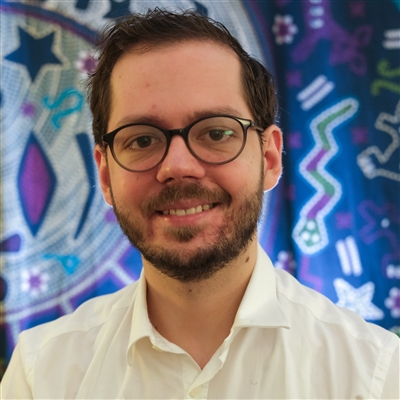Michael Janecek

Class Year:
2018
Job Title:
PhD student in Neuroscience, University of Pittsburgh
Areas of Study:
History, Neuroscience
Hometown:
Prague, Czech Republic
What made you decide to become a History major at LFC?
Something about the told and untold stories embedded in all that we call history spoke to me since high school, perhaps because there is a kind of activism in speaking to power and representing historically oppressed voices and complicating simple foundational myths. Perhaps because I saw myself as a product of post-communism. But it wasn't until I took Anna Jones' "Women in Medieval Christianity" that these insights crystalized.
Is there a specific memory that sticks out to you from your time as a history student?
Between Steve Rosswurm’s methods class that had me marvel at the juicy primary sources sitting in the library archive and Dan LeMahieu’s painterly lectures and discussions—where does documentary work end and propaganda begin—it is difficult to pick just one story to share. I have to go with Anna Jones combining my love for history and science in “Epidemic Disease in Western History,” which challenged me to wear a science hat in making sense of early accounts of infectious mechanisms and historian’s glasses to appraise scientific work thrown out of the cozy laboratory context. This was pre-covid and with a fiction-like aura, but the discussions stuck with me and helped me realize that we haven’t changed much since the days of bubonic plague ravaging London and people turning to quacks and charlatans and on each other in desperation. The cherry on top was Michael Z. David, a physician and an expert in infectious diseases, who came in to give a guest lecture on how Soviet ideas shaped treatment and prevention of tuberculosis in the USSR.
What is something students considering majoring in History should know?
You can carve out a historical question and study it to figure out if that is something you want to keep pursuing. There are undergraduate journals. So don’t be afraid to bother professors about doing historical research. The only way to figure out if you like this kind of stuff is to try it, and waiting until a 300-level course doesn’t help with that.
Why is History relevant and important today?
Who are we and where do we come from? I am much more satisfied with the historians’ answer than with abstracted models and numbers. More practically, at a time when much of history is being revised in the service of short-term political goals, and facts are made fluid by social media, we need to be able to recognize the forces at work and who are we letting write our histories.
What are you up to now? In what ways did being a history major help you after graduation?
I am training with Rui Peixoto at the University of Pittsburgh, where I research how the brain develops in conditions such as autism, and what role dopamine plays not in reward but in wiring up the system and tilting its developmental trajectory. While a PhD takes a level of focus unlike the far and wide liberal arts, being a history major helped me exercise creativity in connecting concepts, sources, and patterns. It also offers a counterweight to the reductionism necessary when studying biological systems. Just because we can measure something doesn’t guarantee we can interpret it—and learning critical historical analysis of sources and causal inference helps me in my research.

